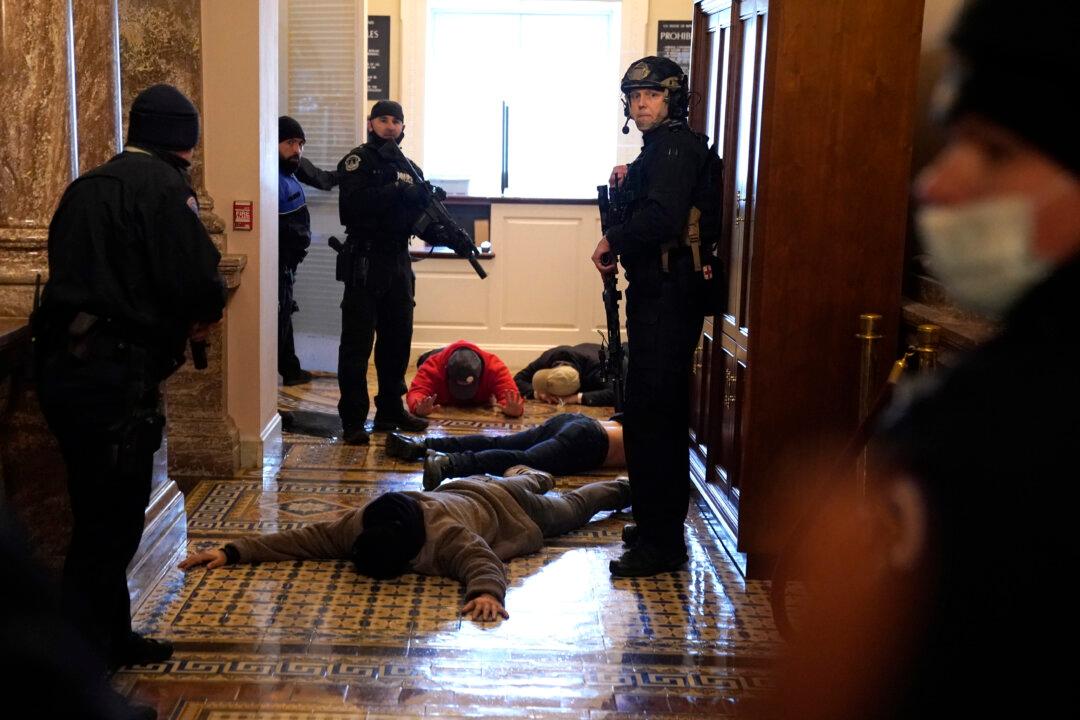The more than 14,000 hours of surveillance video footage from Jan. 6, 2021, held by U.S. Capitol Police can’t be hidden under a cloak of “sovereign immunity” and should be released to the public because it represents “an extraordinary moment in our history,” Judicial Watch argued in a recent legal filing in U.S. District Court.
“Far from routine surveillance footage, the requested video footage is a unique and critical record of an extraordinary moment in our history,” the conservative nonpartisan foundation argued in a filing in its lawsuit, Judicial Watch Inc. v. U.S. Capitol Police (USCP). “USCP recognizes this as they preserved the footage because of its undisputed legal and historical significance.





